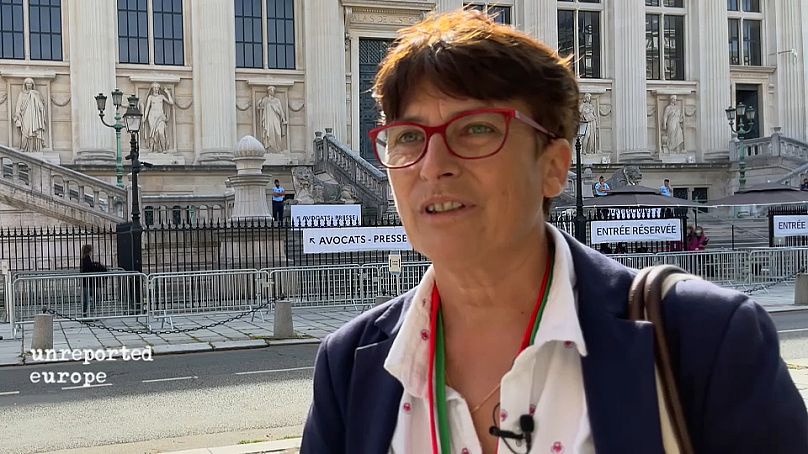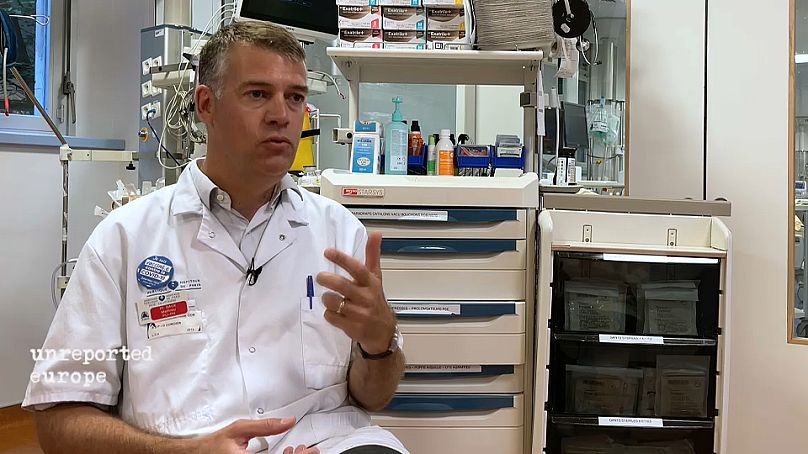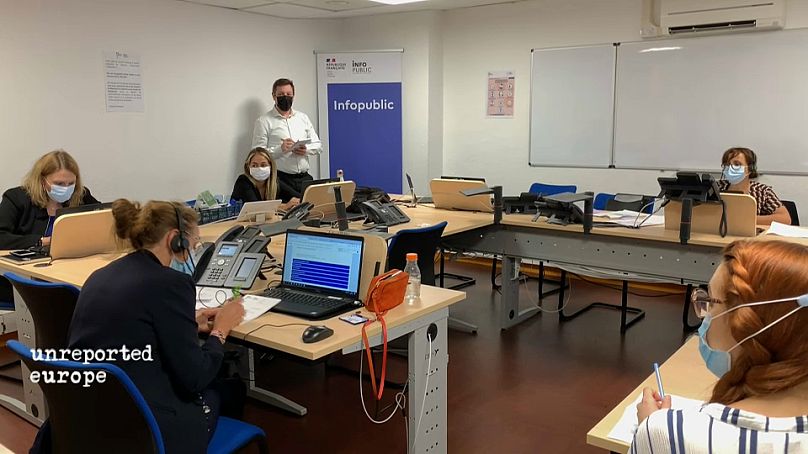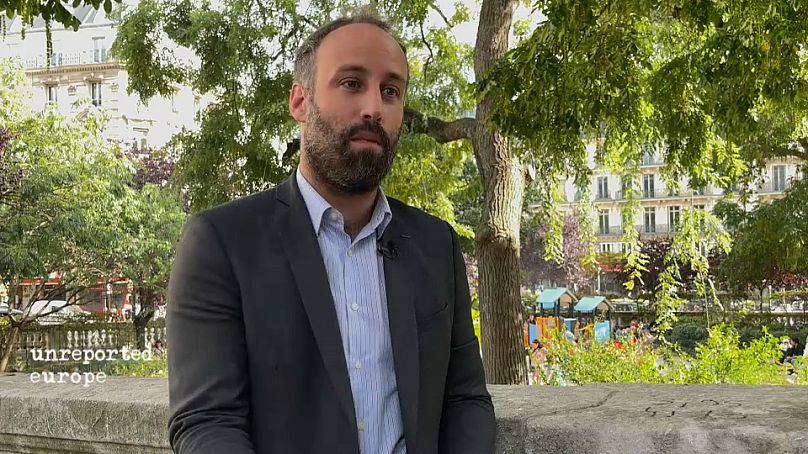Hundreds of victims of the November 13th, 2015 terror attack on Paris are now beginning to testify at the biggest trial in French history. Many of these victims are now fighting for change to care and help systems in the aftermath of attacks. What has changed since 2015, have lessons been learnt?
On the 8th of September 2021, the biggest trial in French history opened. 20 defendants will be prosecuted over the November 13th, 2015 terror attacks in Paris that killed 130 people.
 ADVERTISEMENT
ADVERTISEMENT
 ADVERTISEMENT
ADVERTISEMENT
25-year-old Estelle was among those who died in the attack at the Bataclan concert hall. Her mother, Marie, came to Paris from Brittany to attend the trial. She is expected to testify in October.
She wants the trauma of the attacks to be remembered, but also what happened in the months and years following the attacks to be known. The events have changed her life and the lives of many others she says, and the wounds have still not healed.
Care in the aftermath of the attack
Marie was first informed of her daughter's death on the evening of the attack. It was her daughter's boyfriend, who was wounded in the attack who broke the sad news. When they found out, Marie and her husband headed directly to Paris. After several days of strenuous inquiries, the couple was finally called to identify the body of their child at the Paris Forensic Institute.
"The secretary sat us down in the office and made us fill out some paperwork. We were asked things like, “have you seen an undertaker? Will your daughter be buried or cremated?" she remembers. "We were dazed, we didn’t even know if she was there... and then we had five minutes to see our daughter behind a glass pane. We didn't hear from anyone after that for another week. Then they called us to pick up her body. We were one of five families all summoned at 2 pm, all at the same time. We went into a corridor. There were five mortuary rooms in a line. There were around 100 to 150 people, all going through at the same time. Some people went into the wrong mortuary rooms. It was just a total mess. People were shouting, people were crying in the corridors, people were collapsing.", she describes. "When we entered the room, they said: “you've got 30 minutes with her”. That was it, 30 minutes, then they put her in a coffin. Then one after the other the coffins were put into hearses, and that was it. These are things I'll never forget... "
This was just one of the many hardships faced by victims of the 2015 attacks. Starting with identification errors that led some families to mourn corpses that were not their relatives.
Improving the system
Six years on, efforts have been made to improve aid and support mechanisms for victims of terror attacks, be it immediate care or long-term follow-up. The Pitié-Salpétrière hospital says it has learnt from past mistakes.
Mathieu Raux, intensive care Anaesthetist, coordinated the reception of dozens of wounded people on the night of the 13th of November 2015.
Training medical staff in war medicine and crisis management, new IT systems and a unit dedicated to identifying victims are just a few of the ways the hospital has reinforced its means to respond to potential mass attacks he says.
"The lesson we've learnt goes beyond the hospital's organisation, which is our field. We're now better equipped to identify victims and we have a better capacity to take care of them. We're not really talking about healthcare, we have solid experience in that. It's more about psychological support. And we have improved our way of supporting the relatives of victims, within the hospital, and even by helping to find them. We've also learnt to better support our staff because they too were victims of a form of trauma. “
Under the Ministry of Justice's supervision, the Interministerial Delegation for Victim Support coordinates public policies in this area. It strives to improve support and the long-term monitoring of victims and their families, particularly in regards to psychological help, compensation and return to work. New tools have also been deployed.
Frédérique Calandra, the French interministerial delegate for victim support, tells us that in 2018, two digital IT devices called Sinus and Sivic were created. "They are two victim identification systems that reduce errors, duplications, false alerts", she explains. "On top of that, a decree has just been published on the creation of SIVAC, which is the interministerial information system for victims of terrorism and disasters. It's "the next step to improving information sharing systems, as there are up to 11 different administrations and at least seven ministries that may be involved in the management of these mass attacks, natural disasters and any extremely serious event involving many victims." she explains.
Another new feature is a crisis unit that can be activated by the Prime Minister or the Ministry of Home Affairs in the event of an attack, natural disaster or major accident of any kind. The unit works as a call centre and responds to relatives of victims or actual victims of events. Its capacity allows 50 people to respond immediately and this capacity can be increased if need be.
Fighting for victims' rights
Arthur Dénouveaux is a survivor of the Bataclan attack, and President of Life for Paris, an association for victims of the November 13th attacks. He is one of many who fought for better recognition of terror attack victim status in order to help facilitate procedures, particularly for compensation and reimbursing medical expenses and psychological care. He will testify at the trial, which he says should also allow victims to turn a page.
Since the attack, he has been fighting for "a simpler understanding of this status in order to make it easier for victims to obtain everything they’re entitled to." He also reflects upon how easy it is to become a victim. "Does the state, does society, do victims, really give us the means to stop being victims at some point"? This, he says is one of the association's main battles, "but it’s not necessarily over because there is a part that depends only on ourselves. There must come a time when you are able to get rid of this label."
Fighting radicalisation
For Jean Pierre Albertini, whose son, Stéphane, was killed at the Bataclan, the real issues lie elsewhere. Author of the book 'Mourir au Bataclan', written as a tribute to his son, he also questions the actions taken to combat Islamic radicalism.
"There is a medal for victims of terrorism. But when a state prefers to award medals to the idea of defeating a certain ideology, if it recognises the existence of victims, but is unable to limit their number it is kind of admitting that it has reached a dead end." he states.
Yet, since 2017, several dozen jihadist terrorist attacks have been foiled in France and across Europe. After the bitter failure of the 2015 attacks, perpetrated by individuals known to European intelligence services, serious efforts have been made, says Jean-Charles Brisard, an expert on international terrorism. According to him, authorities quickly realised that these terrorist networks are transnational and that "borders are irrelevant to them". "The important thing is to be able to exchange operational information with foreign counterparts. There is better cooperation now between states and that is quite notable and important for the future. Above all, the terrorist organisations that threaten us have been considerably weakened by military offensives. The will of these groups to strike us still exists and we know that. But we think that this risk is much lower today than the risk of a homegrown threat.”
This threat puts the domestic intelligence services on the front line. In France, they have doubled in size since 2015.














